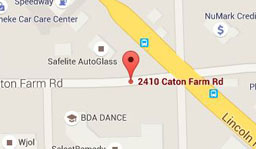Gingivitis and Periodontal Disease

Periodontal (gum) disease results from poor oral hygiene. Untreated cases may cause pain while chewing and could result in tooth loss. Here is a quick overview of gum disease.
Difference Between Gingivitis and Periodontitis
Gingivitis and periodontitis both involve inflammation and infection of the gums. Gingivitis is the milder of the two and is characterized by inflammation of the gums caused by plaque and bacteria buildup. Periodontitis, on the other hand, is a more severe stage of gum disease in which the infection affects the supporting structures of the teeth.
In gingivitis, gum inflammation is often reversible with proper oral hygiene practices. However, if left untreated, gingivitis can progress to periodontitis. As periodontitis progresses, it can cause tooth loss and require more advanced dental treatments.
Causes
Poor oral hygiene is a primary cause of gum disease. When you neglect regular brushing, flossing, and dental check-ups, harmful bacteria in the mouth accumulate, forming a sticky film called plaque. This plaque harbors bacteria that release toxins, irritating the gums and causing them to become inflamed.
A diet high in sugar and carbohydrates contributes to gum disease. Sugary foods and drinks nourish bacteria, fostering their growth and increasing the risk of infection.
Additionally, smoking or using tobacco products negatively impacts gum health. Tobacco use weakens the immune system’s response, making it harder for the body to fight infections in the gums.
Other medical conditions—such as diabetes—and certain medications can compromise the immune system and contribute to gum disease development. Hormonal changes, such as those occurring during pregnancy or menopause, may also make gums more sensitive to infection.
Symptoms
Initially, gums may appear red and swollen. They tend to bleed easily, especially during brushing or flossing. Persistent bad breath or a foul taste in the mouth may also be evident.
As the disease progresses, gums may recede, making teeth appear longer and causing sensitivity to hot and cold sensations. Pus may develop around the teeth and gums. Teeth may become loose and eventually fall out if left untreated.
Additionally, an alteration in teeth alignment might occur due to the loss of supporting bone structure. Gum abscesses may form in severe cases, leading to intense pain and swelling. Gum disease can also cause discomfort while chewing food. If you experience any of these symptoms, it is crucial to seek professional dental care promptly to prevent further damage and maintain good oral health.
Prevention
Brush teeth twice daily using fluoride toothpaste to remove plaque and food particles. Floss once daily to clean between teeth and along the gum line, where a toothbrush cannot reach.
Schedule check-ups at least twice a year. During these visits, the dentist will examine your teeth and gums, detecting any early signs of gum disease. Early detection allows for timely intervention.
Limit sugary and starchy foods as they contribute to plaque formation. Instead, incorporate more fruits and vegetables into your diet, which promotes oral health.
Avoid smoking and tobacco use. These habits increase the risk of gum disease, as they weaken the immune system and damage gum tissue.
Treatment
Dentists will thoroughly clean the teeth and gums to remove plaque and tartar buildup. They may also recommend scaling and root planning to smooth the tooth roots and promote healing.
In more severe cases, dentists may perform gum surgery to access deeper pockets of infection and remove damaged tissue. This helps to reduce the space for bacteria to thrive and aids in gum reattachment.
Dentists may also suggest antibiotic therapy to combat persistent infections. Antibiotics can be administered orally or topically, depending on the severity of the case.
Crest Hill Family Dental focuses on delivering exceptional care, treating the needs of all ages. Our expertise extends to implants, offering cutting-edge techniques to restore smiles and improve oral health with durable and natural-looking results. Contact us to book an appointment.

